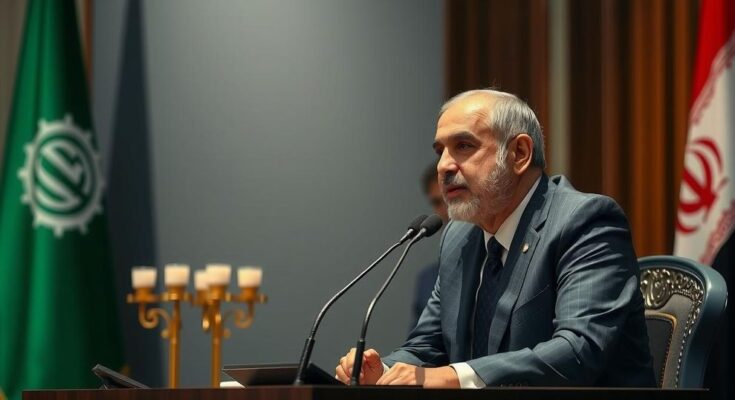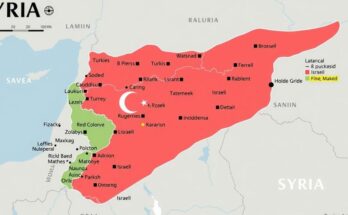Iran’s Foreign Minister Abbas Araqchi accused Israel and the U.S. of orchestrating rebel attacks in Syria as part of a plot to destabilize the region, during a discussion with Russian Foreign Minister Sergei Lavrov. Both ministers expressed their support for Syria amid these developments.
During a recent phone conversation, Iranian Foreign Minister Abbas Araqchi articulated concerns regarding ongoing rebel assaults in Syria, characterizing them as components of a broader strategy orchestrated by Israeli and American forces to instigate regional instability. Araqchi, speaking with his Russian counterpart Sergei Lavrov, underscored the commitment of both Iranian and Russian officials to support the Syrian government amid these escalating conflicts.
The geopolitical landscape of Syria continues to be influenced heavily by foreign interventions and strategic interests, particularly from Israel and the United States. The conflict has seen multiple actors with differing objectives, leading to a complex dynamic in the region. Iran’s strong support for the Syrian regime aligns with its broader goal of maintaining influence in the Middle East, countering adversarial actions from Israel and allied forces.
In summary, Iranian Foreign Minister Abbas Araqchi has publicly condemned the rebel attacks in Syria as part of an alleged conspiracy by Israel and the United States aimed at destabilizing the region. This statement highlights the ongoing tensions and alignment of interests among Iran, Russia, and Syria amidst a tumultuous backdrop of conflict involving various militant groups.
Original Source: www.jpost.com




